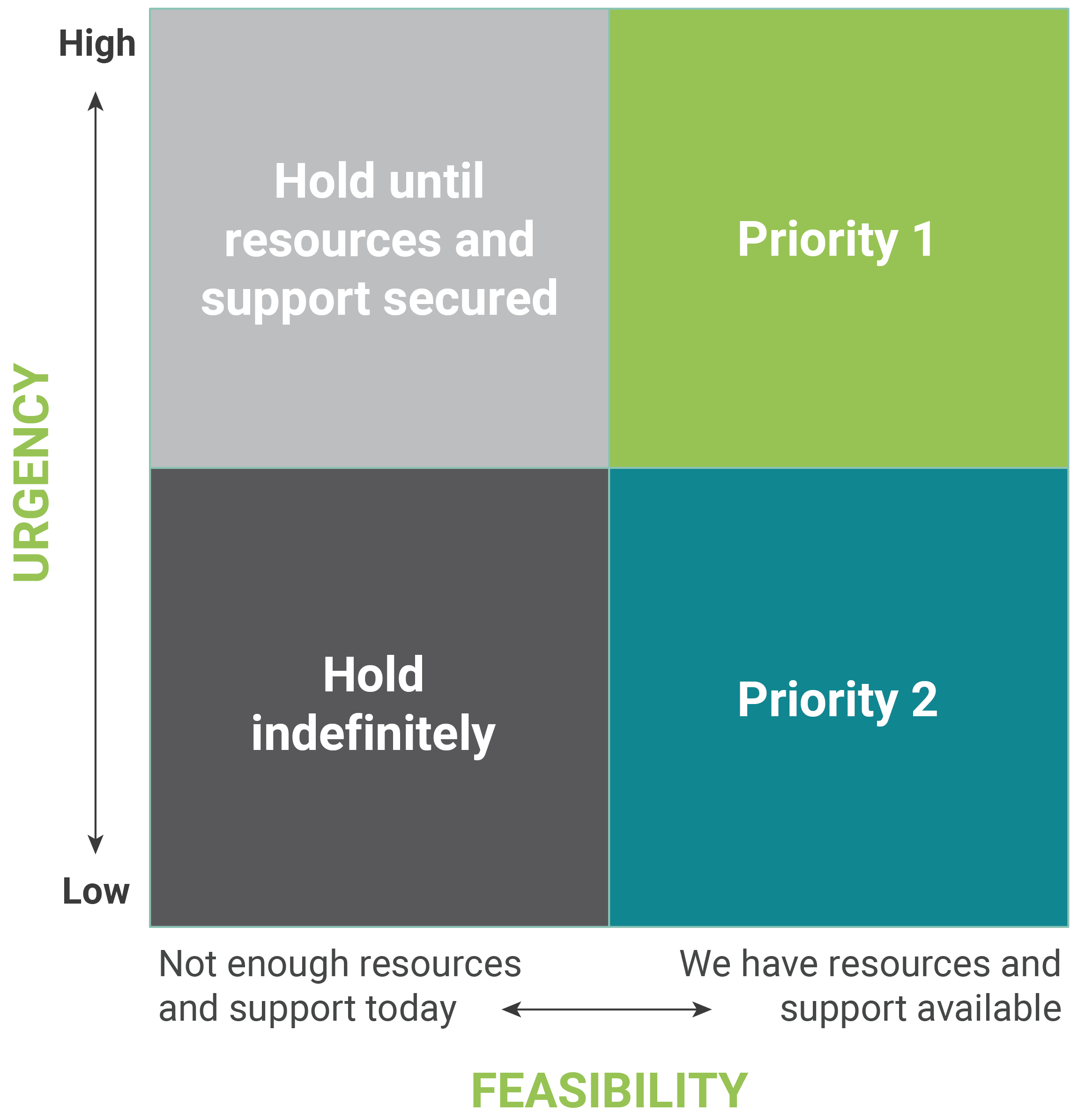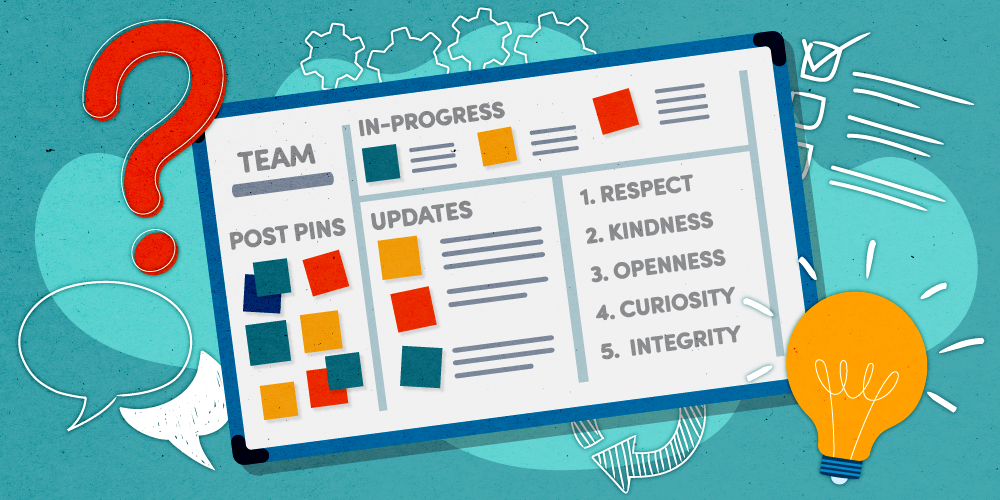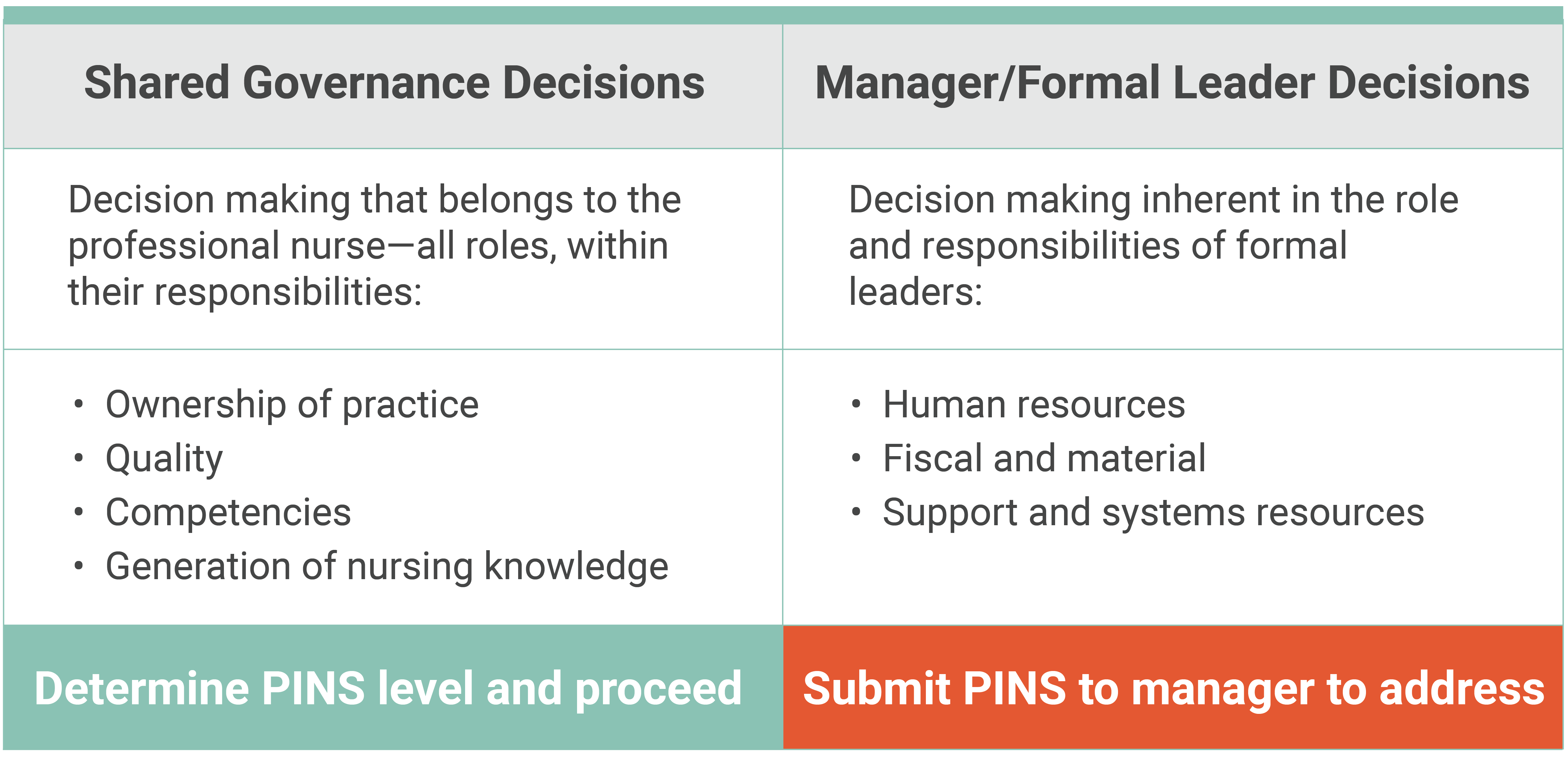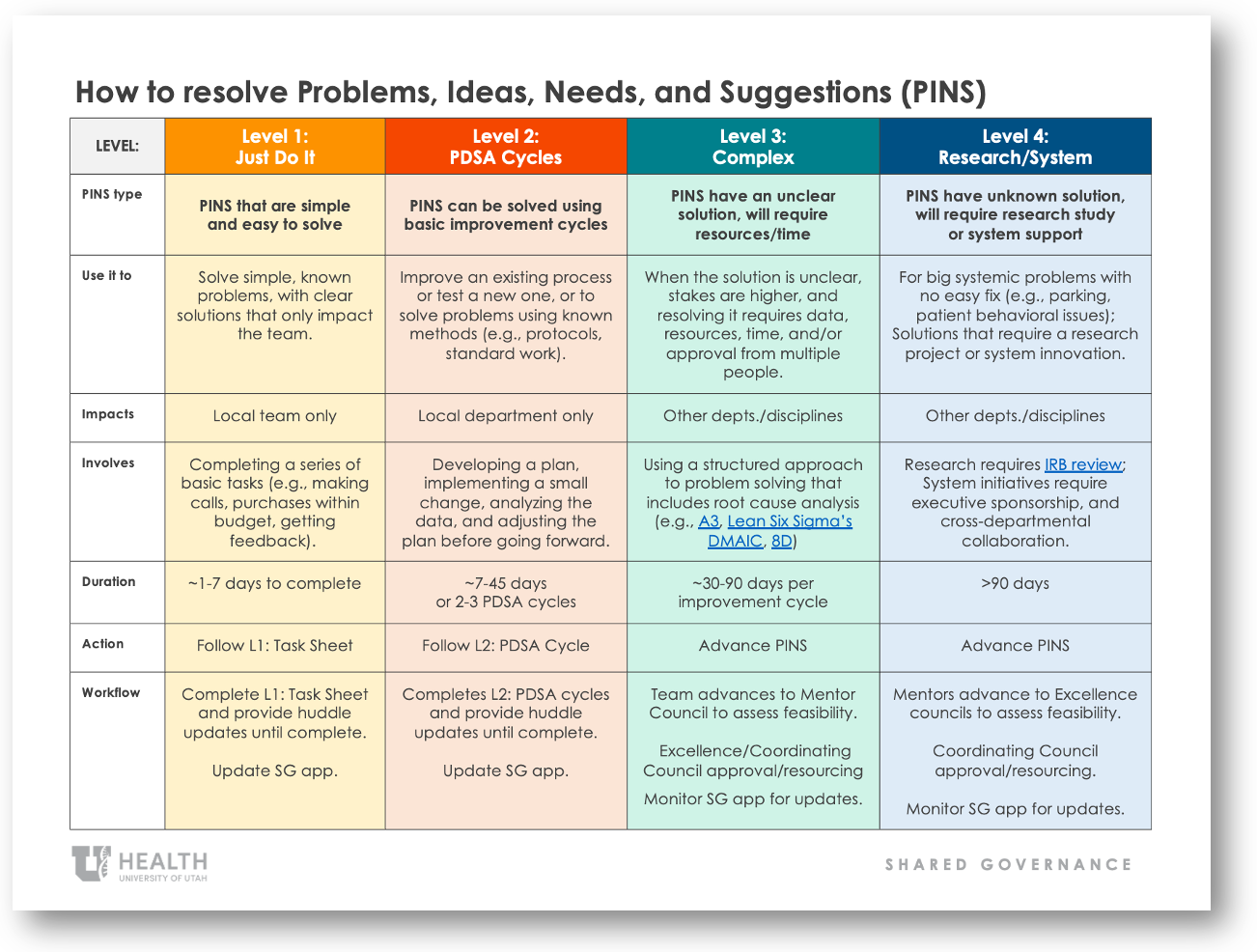part of Shared Governance, we engage in collaborative decision-making by using a Team Board (sometimes called an idea board) to capture local problems, ideas, needs, and suggestions (PINS).
This Toolkit is designed to help teams work together to resolve them.
Getting Started
When reviewing PINS, use the table below to determine if this is a decision the team can make on their own:
Next, use this "How to Resolve PINS Guide" to determine the level of difficulty to resolve (L1-L4). It can help you understand how long it will take, who might be needed, and if/when to advance to other councils for assistance.
 Determine PINS priority and whether to pursue.
Determine PINS priority and whether to pursue.
What is the degree of URGENCY?
- High = preventing work
- Medium = needs attention
- Low = nice to have
What is the FEASIBILITY?
- Can the PINS be achieved with existing resources?
- Does the team have bandwidth to address?
Is it IMPORTANT to the team?
- All members should feel accountable for the group’s decisions and final outcomes.
- If you don’t have consensus, take a vote! (see Shared Governance Bylaws)
Designate who will do what, by when.
All members should feel accountable for the group’s decisions and final outcomes.
1. Identify team members to work on PINS.
- Ask for volunteers. Start with the individual(s) who identified the PINS.
- If no one volunteers, consider if this is something that meets urgency/feasibility criteria and if it should be placed on hold.
- Consider initially partnering less experienced staff with more experienced staff to foster skill development and increase confidence in abilities.
2. Once staff are identified to work on PINS:
- See "Resoliving PINS" below.
- Team Chairs enter PINS into Empower U Website and informs manager of support needed (if any).
- Work with manager:
- Resources and support
- Remove barriers
- Create time for team to work
- During shift (redistribute workload)
- Designate protected time away from regular work duties/hours
Resolving PINS
 "Level 1: Just-Do-It" is used for PINS that are straight forward and easy to resolve within a few days to a week. It involves identifying and completing a series of basic tasks using a Task List until done.
"Level 1: Just-Do-It" is used for PINS that are straight forward and easy to resolve within a few days to a week. It involves identifying and completing a series of basic tasks using a Task List until done.
Download the Just-Do-It Template and follow the step-by-step guide here.
 "Level 2: Plan-Do-Study-Act" is for PINS that impact the local team and department only. PDSA involves completing 2-3 basic improvement cycles that range anywhere from 7-45 days to complete.
"Level 2: Plan-Do-Study-Act" is for PINS that impact the local team and department only. PDSA involves completing 2-3 basic improvement cycles that range anywhere from 7-45 days to complete.
Download PDSA Templates and follow the step-by-step guide here.
“Level 3: Complex Problems” is when the solution is unclear, stakes are higher, and resolving it will require data, resources, time, and/or approval from multiple people.
There are two categories for complex problems:
- L3L - LOCAL: Complex problems that can be managed/controlled locally.
- L3A - ADVANCE: Complex problems that need support, advocacy, and resources from the Coordination Council.
Teams submit all Level 3 PINS via the Empower U web app.
Only L3A PINS are reviewed by the Coordinating Council. If approved, they advance to the appropriate Excellence Council (Patient Care, EBP/Research, or Professional Development/Engagement) and System Partner (e.g., Human Resources, IT) for resolution.
Teams will be updated in Empower U as their PINS progress.
“Level 4: Out of Scope” is when a complex problem falls outside the control of the Department of Nursing. Often these are often the big systemic problems with no easy fix (e.g., campus parking, human resources, or patient behavioral issues), or solutions that require a system-level project or innovation.
Teams submit all Level 4 PINS via the Empower U web app.
All L4 PINS are reviewed by the Coordinating Council. If approved, they advance to the appropriate Excellence Council (Patient Care, EBP/Research, or Professional Development/Engagement) and System Partner (e.g., Human Resources, IT) for resolution.
Teams will be updated in Empower U as their PINS progress.
As always, visit the Shared Governance Pulse site for the most up to date information.
Mary-Jean (Gigi) Austria
While it’s true that large scale changes are required to make a significant difference in how things work, consistent small improvements add up to big impact over time. Magnet program director Gigi Austria and project management experts Kripa Kuncheria and Kim Mahoney explain when and how to Just-Do-It.
Plan-Do-Study-Act is a simple approach for testing a change that is great for first-time improvers and low-stakes problems. Magnet program director Gigi Austria and project management experts Kripa Kuncheria and Kim Mahoney share a step-by-step guide and helpful templates to get started.
Magnet Program Director Mary-Jean (Gigi) Austria explains how Nursing Shared Governance provides support for knowledge sharing, clinical skill building, and collaborative decision-making closest to the point of care.


